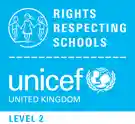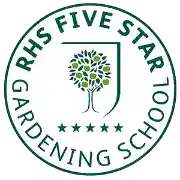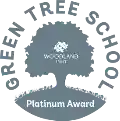Our Curriculum
Whole School Curriculum Content
Teaching, Learning & Curriculum Policy
EYFS Curriculum Parent Information
The Foundation Stage
The Foundation Stage consists of nursery (age 3 to 4) and reception (age 4 to 5) classes. We strongly recommend that all children attend our preschool, Little Chestnuts, when possible, before entering reception. The children who have been through our preschool generally settle and adapt to their reception class quicker than others. Little Chestnuts have their own section on this website and more information is available from the school office.
Our Early Years classes provide a friendly, secure and stimulating environment where children can learn through a wide range of experiences. Our carefully planned and engaging activities enable every child to develop when they are ready. In Foundation Stage our emphasis is on the children learning through active learning and play. Child initiated learning allows the children to develop a range of skills including talking about their experiences, exploring messy play or extending ideas through mark making.
During their time in Early Years, the children develop independence and resilience through the enabling environments, positive relationships and open ended opportunities. This helps to develop their characteristics of an effective learning and support them throughout their individual learning journey. The Characteristics of Effective Learning are shared with children and parents to encourage children to take ownership of their learning and enhance their curiosity towards learning. The Characteristics are explained through; playing and exploring (engagement), active learning (motivation) and creating and thinking critically (thinking).
The Reception classes and Little Chestnuts work closely together to ensure an engaging and balanced framework for all the children. Through active learning the children frequently access and experience all the areas of learning as laid out in the Early Years Statutory Framework. The 7 areas of learning are divided in to; 3 Prime Areas, which are fundamental skills and support development in all other areas, and 4 Specific Areas, which include essential skills and knowledge for children to participate successfully in the world around them.
Prime Areas:
- Personal, Social and Emotional Development (Making Relationships, Managing Feelings and Behaviour, Self Confidence and Awareness)
- Physical Development (Large motor skills and Fine motor skills - threading, manipulative skills, pencil control etc., Health and Self Care)
- Communication and Language (Listening and Attention, Understanding, Speaking)
Specific Areas:
- Literacy (Reading and Writing)
- Mathematics (Number, Shape, Space and Measure)
- Understanding the World (People and Community, The World, Technology)
- Expressive Arts and Design (Being Imaginative, Exploring Media and Materials)
The overview of the curriculum for the current year can be found on the Reception Page.
Students from the local colleges and schools are welcome to continue their training and be members of our team. Parents are welcome to help with various activities on certain days but please be aware that DBS clearance is required when volunteering to help in school.
Key Stage 1 Curriculum and Organisation - Years 1 & 2
Our curriculum is designed to inspire and motivate pupils while providing for their academic, moral, physical, creative, personal and social development. Throughout Key Stage 1 we recognise the importance of making links across the curriculum and incorporating children’s interests in the planning process. Lessons are designed to ensure pupils acquire knowledge and skills and have opportunities to practise and apply their skills in a range of contexts.
Children learn through a careful balance of specific teaching of key skills within an engaging topic based approach. All classes are of mixed ability and we have an innovative approach towards ensuring that children are taught in ways that meet their individual needs. Flexible groupings linked to children’s individual next steps are arranged on a weekly basis. At least twice a week, all pupils are taught Maths and English in smaller groups with additional teachers and support staff to ensure a personalised learning experience. We encourage co-operative work, talk, discussion and above all, enjoyment as vehicles for learning in all subjects.
In Key Stage 1 the National Curriculum is made up of the core subjects: English, Maths, Science and Computing. Further details about each of these can be found below. The curriculum areas taught in addition to the core subjects are: Art and Design, History, Geography, Religious Education Music, Physical Education and Personal, Social, Health and Citizenship education.
English: The aim for English in the National Curriculum is to promote high standards of language and literacy by enabling children to develop a good command of the spoken and written word, and to develop their love of literature. We aim to develop children’s abilities within a cross curricular programme of Reading, Writing and Speaking & Listening. Across all classes, pupils are given opportunities to develop their knowledge, understanding and use of spoken and written English, within a balanced and exciting curriculum. There are lots of opportunities for children to consolidate and reinforce taught English skills and to apply them in a range of contexts. Phonics continues to be taught in small groups across the year group.
Maths: Fluency, reasoning and problem solving are three themes of the maths National Curriculum and inform all maths teaching. Our approach supports progression throughout the primary years and gives children the knowledge and tools they need to have a deep understanding of number. Children are exposed to conceptual ideas at a concrete level with a range of resources (e.g. counters, Diennes and Numicon) before moving on pictorial representations. Doing so develops children’s deep conceptual understanding and skills proficiency which supports the next move into written methods for the four calculations.
Science: Our science lessons ensure that ‘working scientifically’ (observing over time; pattern seeking; identifying, classifying and grouping; comparative and fair testing and researching using secondary sources) are embedded strongly through hands-on investigations. Children develop their natural curiosity within the school grounds and use their exploring skills to enhance their knowledge about the world around them. Science provides a vital opportunity for children to share their verbal understanding to both their peers and class teacher.
Computing: The aim for Computing in the National Curriculum is to enable children to be responsible, competent and creative users of information and communication technology. We use Chromebooks and iPads to create and store content for a purpose and children learn how to use technology safely and respectfully. Children look at stories and discuss the importance of e-safety and keeping personal information private. BeeBots and Probots are used to develop children’s early coding skills and they have opportunities to create their own algorithms (set of precise instructions for a program). We have a cross curricular approach of teaching Computing and promote the use of technology in all subjects.
The overviews of the curriculum for each year group are under Year One and Year Two pages.




